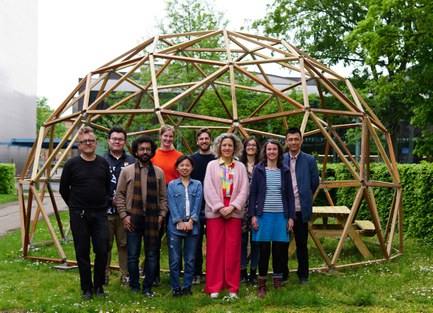BioCo research group
Prof. dr. ir. Eveline Volcke and her BioCo research group are part of the Department of Green Chemistry and Technology, Ghent University. Their research mainly focuses on greenhouse gas emissions from wastewater treatment, innovative nitrogen removal, granular sludge reactors and data evaluation.

Eveline Volcke is a full Professor at Ghent University, leading the BioCo research group. Eveline’s interdisciplinary research expertise can best be described as process engineering for biological wastewater treatment and resource recovery processes. She aims at process optimization through physical-based modelling and simulation, data treatment techniques and experimental studies. With her BioCo group and through international collaborations, Eveline has provided major insights concerning greenhouse gas emissions from wastewater treatment, innovative nitrogen removal, granular sludge reactors and data evaluation. She co-authored more than 100 publications in journals listed in ISI Web of Science. Eveline is a Distinguished Fellow of the International Water Association (IWA).
Master thesis topics (2024-2025)
Visit our BioCo YouTube Channel
Download the BioCo group flyer
Research mission
Biosystems control ... towards a sustainable future
Research focus = efficient and sustainable process design and process control.
Sustainability = meeting the required product or effluent quality with reduced use of energy, resources or added chemicals, aiming for reuse, reduced greenhouse gas emission, more compact installations, ... in a reliable, safe, economically beneficial and socially acceptable way.
Application domain
- a priori not limited / applied methodologies are generally applicable
- environmental technology
- bioconversion processes
Methodology
Process engineering aspects, in particular the actual design and control of processes and reactors, are studied by means of:
- physical-based models (based on conservation of mass, energy, ...)
- monitoring campaigns and full-scale experiments
- theoretical systems analysis and numerical simulation
- lab-scale experiments